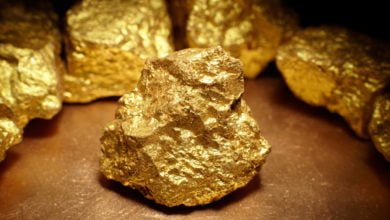As the world races to meet ambitious climate goals, mineral-rich countries in Africa find themselves in an important position as the provider of critical elements needed to power the global energy transition to renewable energy.
However, data from the Business & Human Rights Resource Centre (BHRRC) exposes a sharp increase in human rights and environmental abuses linked to the mining of minerals critical for this global shift to renewable energy.
Between 2010 and 2024, the organisation’s global Transition Minerals Tracker recorded 178 allegations of abuse in Africa, making up more than 20% of global cases. In 2024 alone, 45 allegations were reported, up from 26 the previous year – with cobalt and copper mines in the Democratic Republic of Congo (DRC) accounting for nearly half. These abuses include violations of workers’ rights, disregard for community consent, environmental degradation, and attacks on human rights defenders.
Key findings from the region (2010 to 2024) include:
- Africa accounted for more than 20 per cent of all human rights abuse allegations recorded globally.
- The DRC recorded the highest number of allegations in Africa (91), followed by Zambia (36).
- Local communities were the most impacted by allegations of abuse in Africa (84), followed by workers (56).
- However, workers and communities are starting to fight back. In Africa, there have been five recorded lawsuits related to mining activities in DRC and three related to working conditions. Two cases were recorded in Zambia.
The DRC and Zambia’s important role in the global energy transition is underscored by the construction of the Lobito Corridor, a huge infrastructural development connecting mineral-rich parts of DRC, Zambia and Angola for onwards shipment out of Africa.
Joseph Kibugu, Africa Regional Manager at the Business & Human Rights Resource Centre, said: “Our findings highlight Africa’s dual position: a continent with rich reserves of transition minerals like cobalt, copper, lithium and manganese, yet one of the most climate-vulnerable regions. While countries such as Kenya showcase renewable energy leadership, mining-linked harms are undermining the promise of a just transition. Given the role Africa plays in producing minerals that are critical to the global energy transition, it is crucial that we examine the costs of the mining of these minerals – and who is bearing the worst of it.
“Our data reveals that the global rush to extract these minerals is having a significant negative impact on workers and local communities. In Africa, we have seen allegations of abuse relating to worker’s safety and a failure to respect community rights. There is little evidence to suggest that locally affected communities will reap any benefits of the current transition mineral mining boom, even though extraction occurs on their lands.
“Companies involved in the mining of these minerals would do well to realise that this raises serious concerns for their operations in Africa. Workers and communities are starting to fight back, with a rising trend of lawsuits against transition mineral mining firms and renewable energy companies for harm caused by their activities. Ignoring the systemic human rights abuses in their supply chains not only raises serious moral questions and concerns about their corporate responsibilities but also casts a shadow over the energy transition upon which the world relies. For the transition to be truly just, it must be centred on the rights and participation of Indigenous Peoples, frontline communities and workers. These rights-holders must be recognised not as obstacles, but as essential partners in making the transition fast, fair and sustainable. The energy transition has the potential to succeed for the planet, people and the private sector but only if companies and investors take responsibility for getting it right.”









